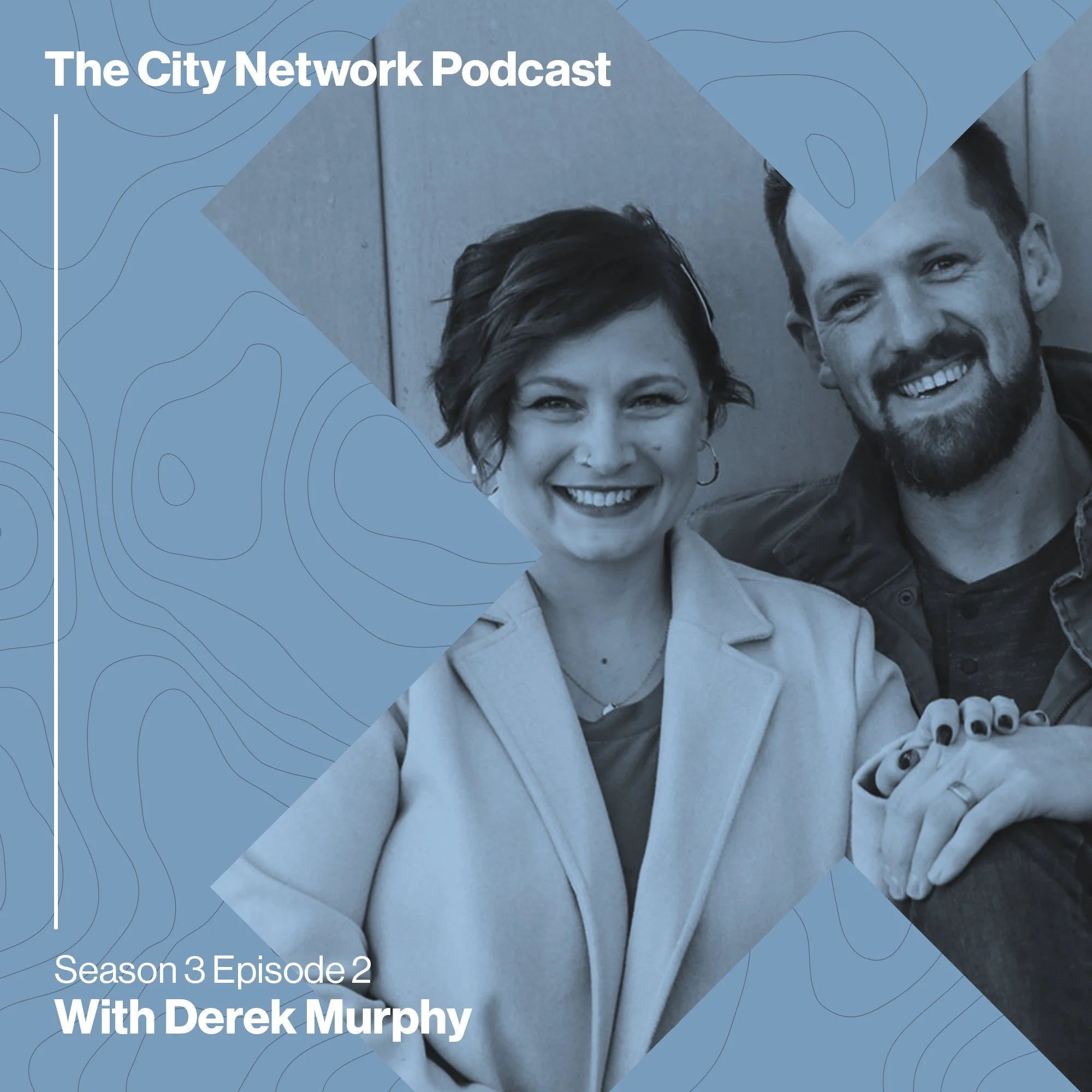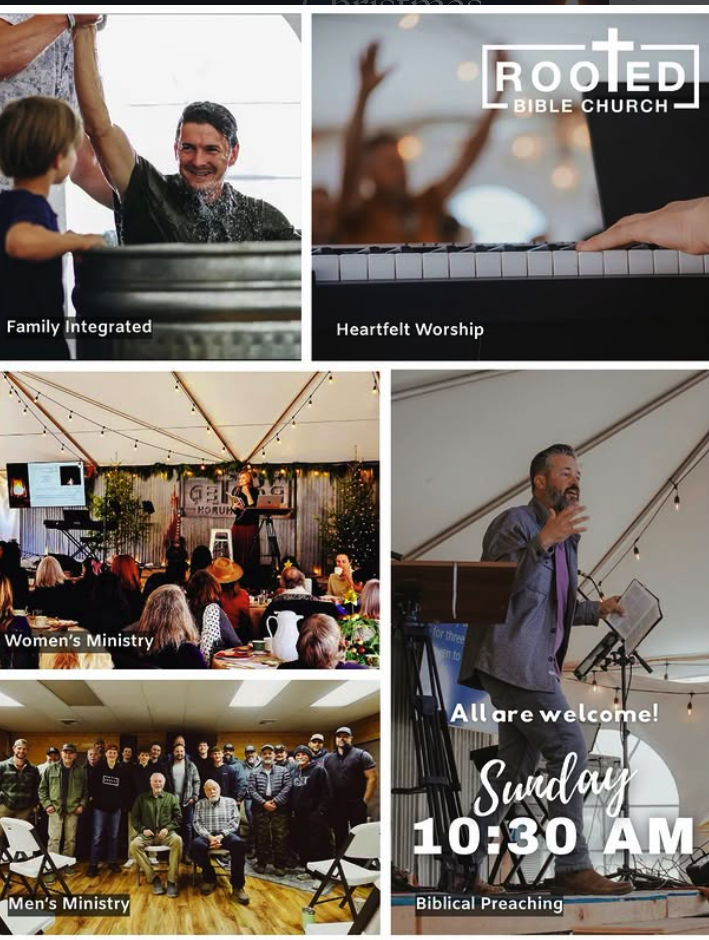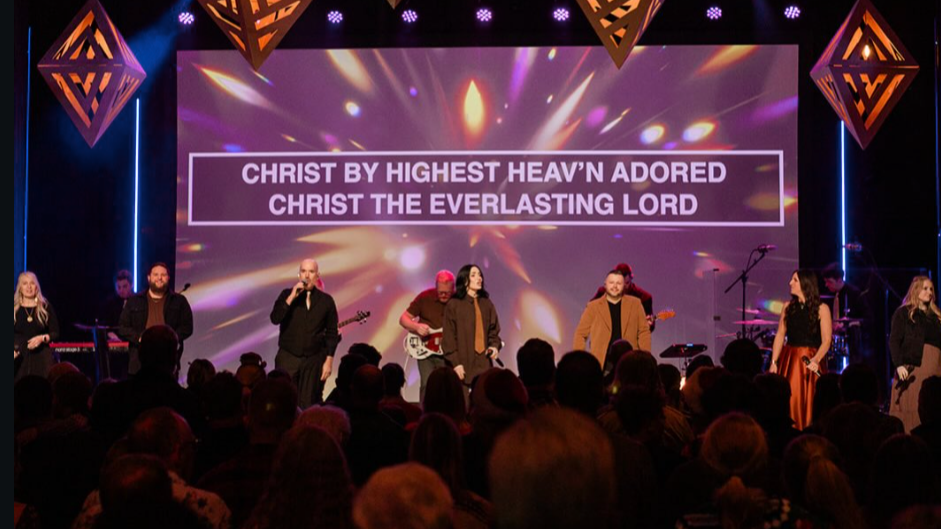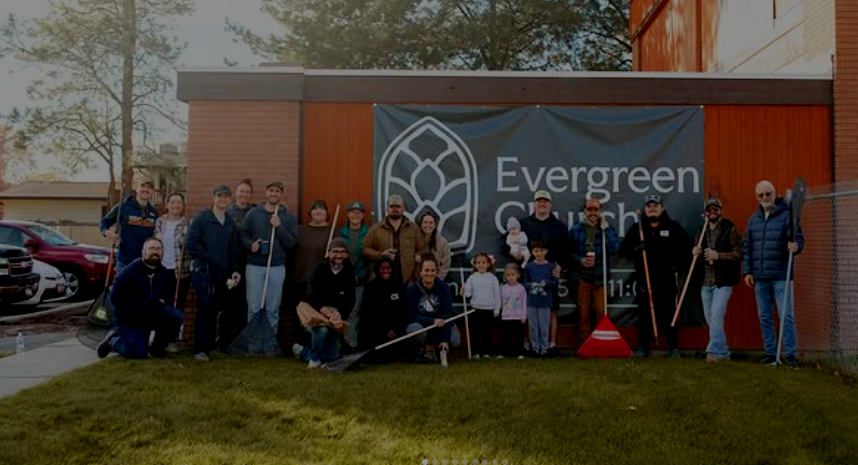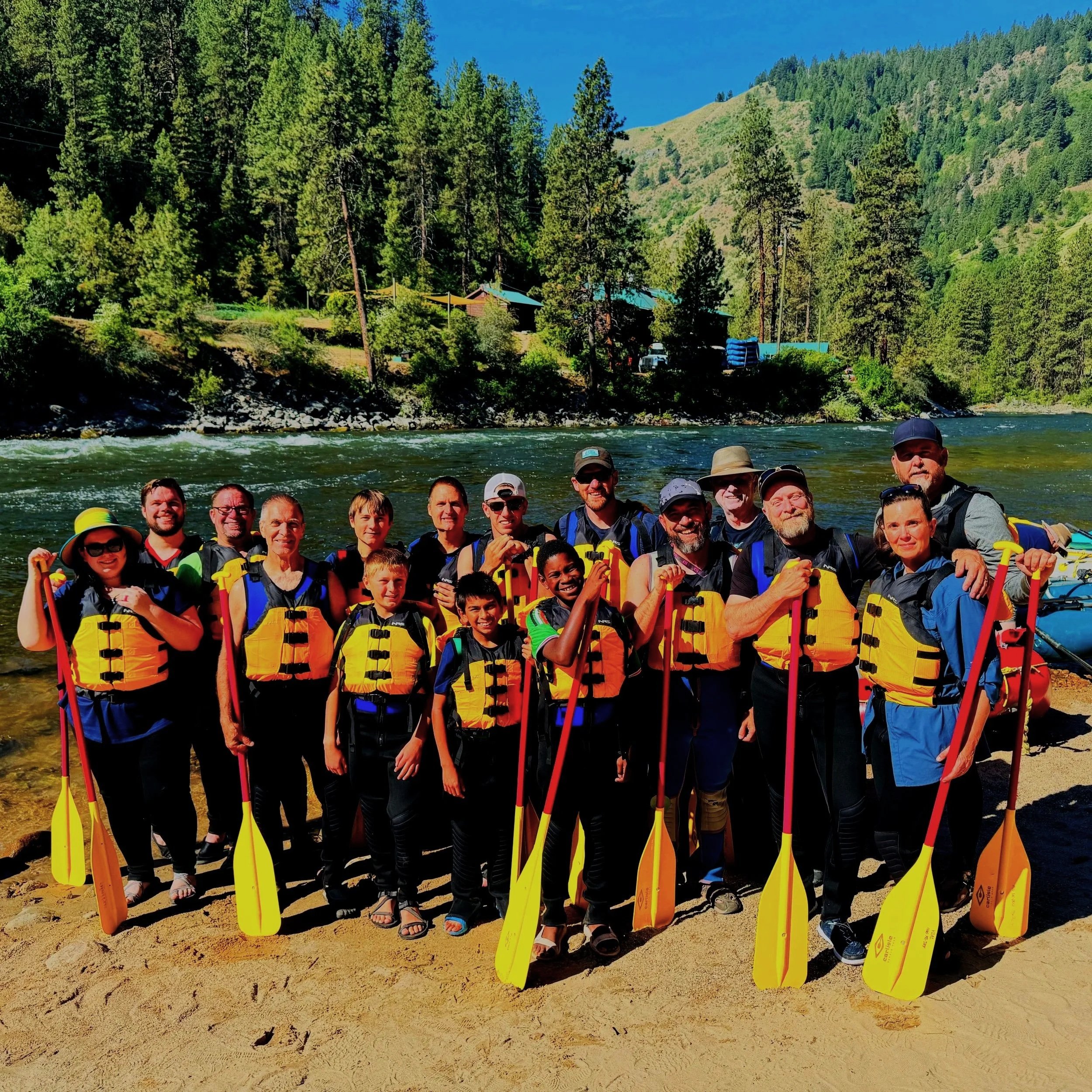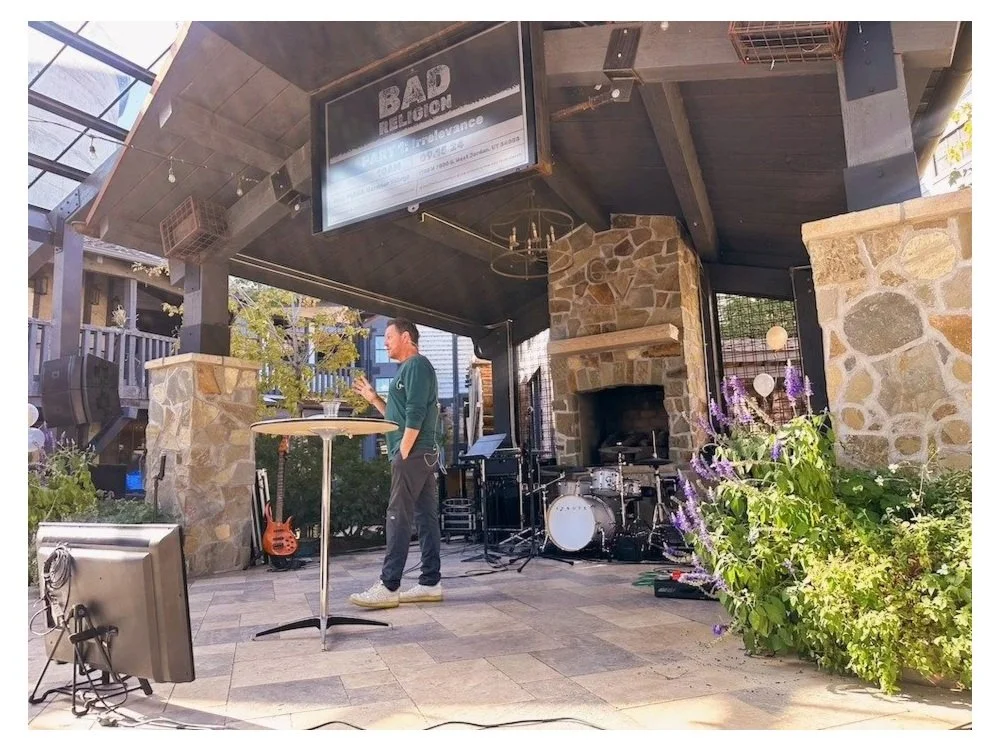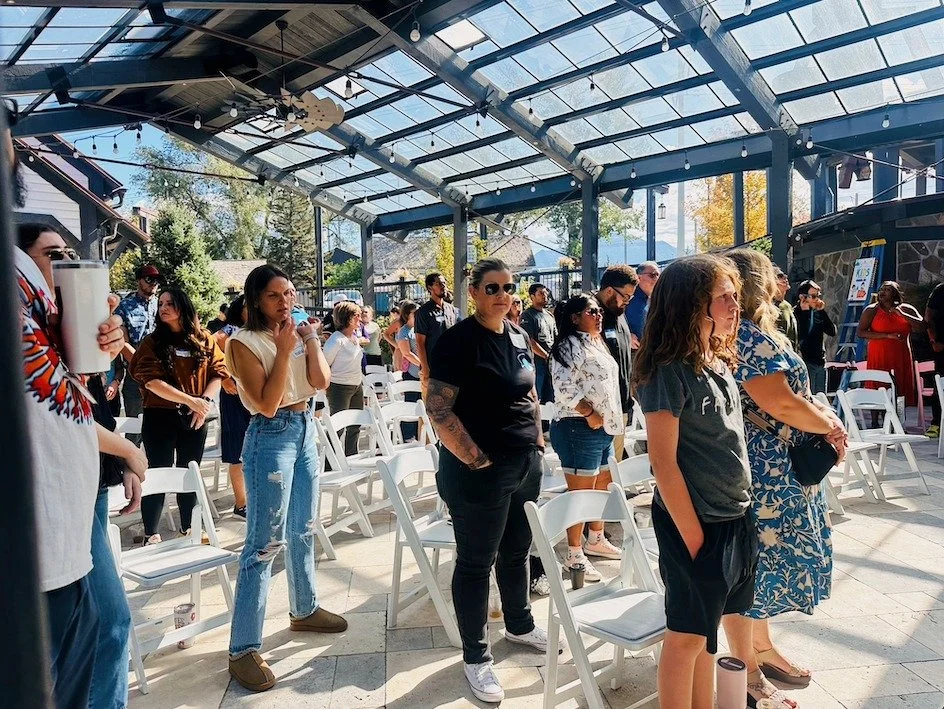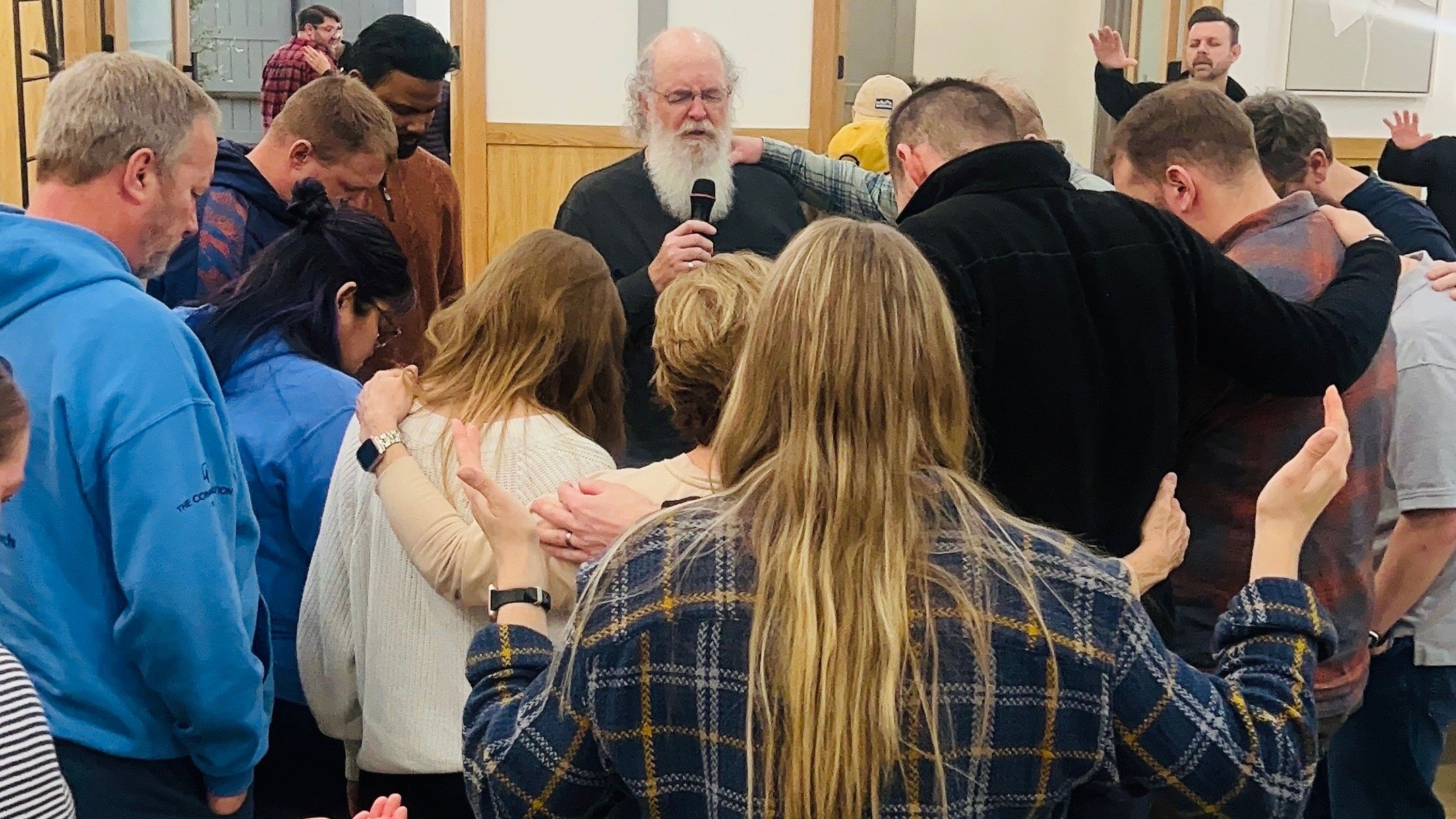Lewiston Hill 2025
Where it all started…
PRAYER WALK OCT 2024
↓↓↓↓↓↓↓↓↓↓↓↓↓↓↓↓
We Start With Prayer (Because That’s Where Movements Begin)
We begin with prayer.
Not as a formality. Not as a transition.
But because that’s where every real movement of God actually starts.
In October of 2024, just over a year ago, our ICPA board and a handful of faithful friends from Moscow and Pullman gathered at the top of the Lewiston Grade. We stood overlooking the confluence of the Clearwater and Snake Rivers and prayed for something that did not yet exist.
A new church in Lewiston.
One that would make disciples.
Elevate ordinary people.
And prioritize relationships over programs.
There was no strategy session.
No building.
No planter identified.
Just fifteen or twenty ordinary people asking God to move.
One of the guys there even said later, “I thought if we were gathering to pray, we were further along in the process. I assumed we at least had the planter.”
It felt small.
It was simple.
It was the beginning.
The Planter Who Wasn’t There
Here’s what still makes me laugh.
The lead church planter wasn’t even at that prayer gathering.
Adam McElderry—who is now planting in Lewiston—didn’t come that day.
Prayer walk?
“Not really my thing,” he told me later.
At the time, Adam assumed prayer like that was for someone else. Someone already called to Lewiston.
He just didn’t know yet that someone was him.
And the funniest part?
Right after that October prayer meeting, Adam tried to recommend someone else to plant in Lewiston.
Sometimes calling is like a boomerang.
You throw it away…
and it comes right back and knocks on the door of your heart.
Years earlier in Montana, God had placed a desire in Adam’s heart to plant a church—then covered it like a seed, waiting for the right season.
When the Seed Breaks the Soil
Fast-forward to December 2025.
Adam and I prayer-walked Lewiston together.
Five people handed him their contact information in one afternoon.
He felt God planting an image of the new church in his soul—one of new life and rootedness.
The plan God had hidden in his heart came into focus.
God Has Always Done It This Way
This isn’t the first time God has worked like this.
Before Real Life on the Palouse ever existed, the ICPA board prayed for a church in Moscow. They dreamed of something near the University of Idaho. They wanted someone to reach students.
Board member Aaron Couch went looking for the right guy.
He looked.
He prayed.
He searched.
And eventually realized…
the right guy might be him.
So he asked God for something impossible.
“God, if you’re calling me to Moscow, give me an elk on opening day.”
God responded.
Elk.
Opening day.
Twenty feet from his truck.
And if you rewind one more generation—
Before Real Life Post Falls became a movement, two couples met and prayed weekly. They asked God to raise up someone who could plant a disciple-making church in Idaho.
Before Jim Putman, Lydia Grubb was praying with her husband and friends.
Their prayers became churches.
Churches became movements.
Movements became generations of disciples.
All of it began the same way.
Humble prayer.
Ordinary people.
Believing what they couldn’t yet see.
What 2025 Taught Us
2025 reminded us of something essential:
Prayer is not fuel for the work.
Prayer is the work.
We didn’t manufacture this momentum.
We prayed—and God answered.
So What Do We Do Next?
The same thing we did a year ago on the Grade.
We ask.
We listen.
We obey.
Not because prayer is all we can do,
but because prayer is what God uses to start everything that matters.
“When the Son of Man returns, will He find faith on the earth?”
— Luke 18:8
In 2025, we saw again what happens when He does.
Here’s to 2026
May we pray bigger.
May we listen deeper.
May we lay hold of what we cannot manufacture.
May we go where He sends.
Because people really are the prize.
And prayer is how God puts them in our path.
People Are the Prize.



